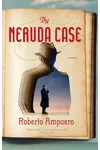Picture a Chilean storyteller whose pen dances between gritty detective mysteries and poignant political memoirs—meet Roberto Ampuero! Born in the vibrant port city of Valparaíso, Ampuero has woven tales that captivate readers worldwide, from the roguish Cuban detective Cayetano Brulé to introspective accounts of life under communism. His novels, translated into over ten languages, blend Latin American flair with global intrigue, while his career as a diplomat and professor adds depth to his literary voice.
Ampuero’s life is a tapestry of continents and ideologies, shaped by exile, love, and a relentless pursuit of truth. Whether you’re a fan of crime fiction or curious about the cultural pulse of Latin America, his stories offer a thrilling ride through history and human nature.
The Making of Roberto Ampuero
Born on February 20, 1953, in Valparaíso, Roberto Ampuero grew up in a middle-class family with a French grandmother and a father tied to U.S. intelligence during World War II. His early years at the Deutsche Schule in Valparaíso sparked a love for languages and discipline, setting the stage for his global adventures. After studying social anthropology and Latin American literature at the University of Chile, Ampuero joined the Communist Youth, believing in a democratic socialism. The 1973 Pinochet coup forced him into exile, first to East Germany, then Cuba, where he married Margarita Flores, daughter of a Cuban revolutionary. Disillusioned by the realities of communism, he defected to West Germany in 1983, a journey that would shape his writing.
Roberto Ampuero’s Unforgettable Stories
Ampuero’s literary career exploded with his debut Spanish-language novel, ¿Quién mató a Cristián Kustermann? (1993), introducing Cayetano Brulé, a Cuban-born, Valparaíso-based private eye with a knack for unraveling mysteries. This award-winning novel, blending noir with Latin American political undertones, launched a beloved series that includes El caso Neruda (2008), where Brulé investigates the final days of poet Pablo Neruda against the backdrop of Pinochet’s rise. Ampuero’s prose is sharp, infused with humor and cultural nuance, making his detective tales both thrilling and reflective.
Beyond crime fiction, Ampuero’s autobiographical novel Nuestros años verde olivo (1999) offers a raw account of his years in Cuba, capturing the disillusionment of a young idealist confronting the revolution’s flaws. His 2003 novel Los amantes de Estocolmo, a bestseller and Book of the Year in Chile, explores modern relationships with an erotic and psychological edge. Pasiones griegas (2006), voted Best Spanish Novel in China, showcases his ability to craft universal stories with local resonance. Ampuero’s style—vivid, character-driven, and politically astute—bridges the personal and the historical.
Why Roberto Ampuero Matters
Roberto Ampuero’s impact transcends the page. His Cayetano Brulé series has redefined Latin American detective fiction, offering a fresh perspective that challenges Western archetypes like Philip Marlowe. His works, selling over 40 editions in Chile alone, resonate globally, translated into languages from Croatian to Chinese. As a professor at the University of Iowa and former Chilean Minister of Foreign Affairs (2018–2019), Ampuero has shaped cultural and diplomatic dialogues, amplifying Latin American voices. His memoirs, like Nuestros años verde olivo, provide a vital lens on the Cold War’s human toll, making him a bridge between literature and history.
- Born: February 20, 1953, Valparaíso, Chile
- Key Works: ¿Quién mató a Cristián Kustermann?, El caso Neruda, Nuestros años verde olivo, Los amantes de Estocolmo
- Awards: El Mercurio Revista del Libro Prize (1993), Book of the Year in Chile (2003), Best Spanish Novel in China (2006)
- Notable Roles: Professor at University of Iowa, Chilean Minister of Foreign Affairs (2018–2019)
Ready to dive into a world of mystery and memory? Grab El caso Neruda or Nuestros años verde olivo and let Roberto Ampuero’s vibrant storytelling sweep you away!
